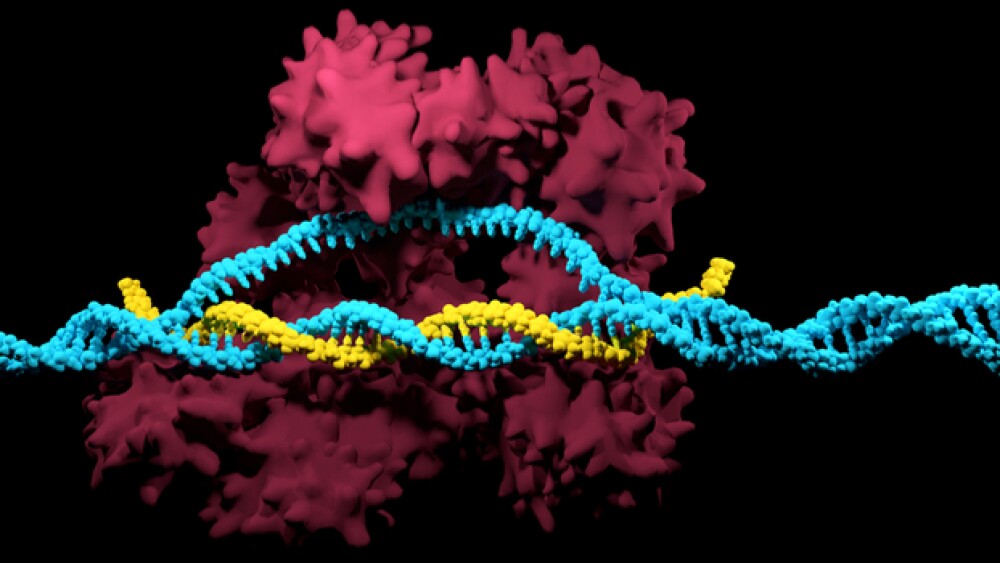Although there have been numerous variations on CRISPR that improve its effectiveness and apparent safety, there are still concerns about off-target edits and immune reactions to the Cas9 enzyme used to cut DNA.
Cyrus Biotechnology, a Seattle-based biotechnology software company, has partnered with the Broad Institute of the Massachusetts Institute of Technology and Harvard to make CRISPR gene editing safer for human use.
CRISPR stands for clustered regularly interspaced short palindromic repeats, which is otherwise a fast and easy way to edit DNA. CRISPR-Cas9 allows researchers to easily identify specific gene sequences, clip them out and replace them. It has been cited as one of the most important and recent discoveries that could lead to new therapies and treatments for numerous diseases.
Although there have been numerous variations on CRISPR that improve its effectiveness and apparent safety, there are still concerns about off-target edits and immune reactions to the Cas9 enzyme used to cut DNA. The immune reaction concern, at its worst, can decrease or eliminate T-cell immunogenicity. This immune reaction is the primary area Cyrus and Broad will focus on.
“Broad researchers and their collaborators have pioneered the development and sharing of new genome editing tools, such as CRISPR-Cas9, which are revolutionizing and accelerating nearly every aspect of disease research and drug discovery around the world,” said Issi Rozen, chief business officer at Broad. “With this collaboration, scientists will continue to improve the technology towards new tools and therapeutics, important to benefiting patients in the long term.”
Feng Zhang will act as principal investigator for the Broad for the partnership. Zhang is noted as one of the discoverers of CRISPR with George Church, in parallel with Jennifer Doudna and Emmanuelle Charpentier.
Cyrus has what it is calling a “computational deimmunization platform” that leverages structural biophysics and machine learning to design CRISPR-Cas9 enzyme less likely to cause an immune response. It is built on Rosetta, a protein modeling and design software platform.
Lucas Nivón, chief executive officer of Cyrus, told Xconomy that the theory is to reengineer only the problem parts of the enzyme while keeping its overall function. It has been proven in three published studies, one in mice and two in humans, as well as in other as-yet-to-be published studies.
The involved parties have committed to publishing the results of the collaboration in peer reviewed journals and make their work freely available to the non-profit and academic scientific community.
“We have validated our computational deimmunization platform in a variety of systems, and now seek to apply it where it can make a major impact,” Nivón said. “Given the extensive therapeutic possibilities of CRISPR systems, and the leading position the Broad Institute and Dr. Zhang hold, we are very excited to work in partnership with them to make these molecules more amenable for use in humans with maximal efficacy and minimal side effects.”
Cyrus provides commercial access and partnerships to Rosetta. The software has been utilized for several biological molecules that have made it into preclinical and clinical development. These includes therapeutics being developed by PVP Biologics, Tocagen, Lyell and others.
The research into the abnormal immune responses to CRISPR was published in 2018. In October 2018, a group of German researches published their studies in the journal Nature Medicine that showed 96% of 48 healthy patients had T-cell based immunity against Cas9 and 85% had antibodies against it. This was higher than what had been seen in a Stanford School of Medicine study released in January 2018.
Cas9 is an enzyme derived from a bacterium known as Streptococcus pyogenes. Cas9 is the most common enzyme used in CRISPR.
Michael Schmueck-Henneresse of Charité University Medicine Berlin, who led the Nature Medicine study, was at first surprised by the 96% results. “But it made sense because the Streptococcus pyogenes bacterium is one of the most common causes for bacterial infections in humans and we have all been through multiple infections and potentially even been colonized by it,” reported Xconomy.





